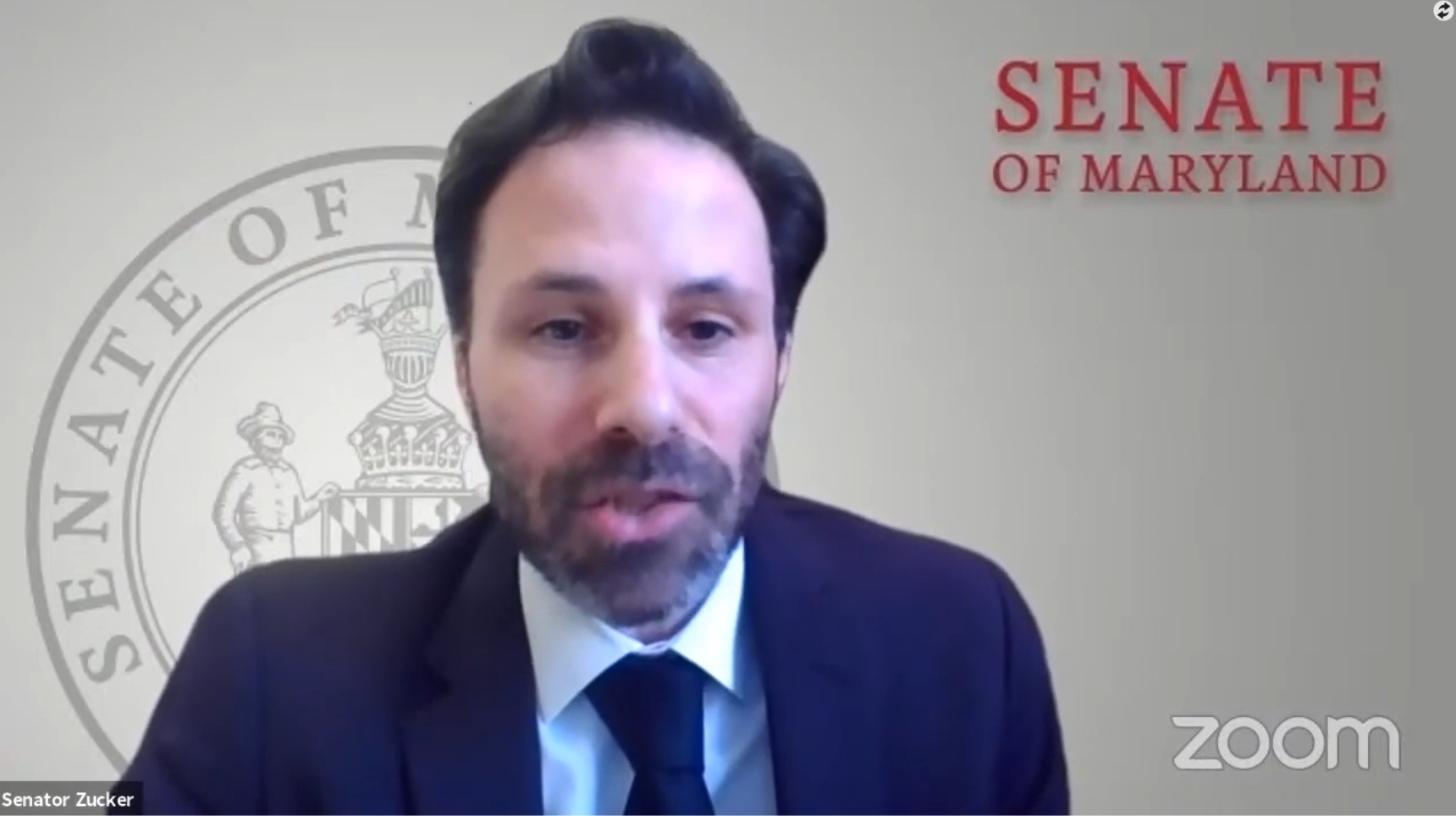Aiming to alleviate the strain of the COVID-19 pandemic, the Maryland General Assembly is advancing a bill creating a powerful tool to provide residents with enhanced mental health services.
SB719, also known as the Thomas Bloom Raskin Act, would require the Maryland Department of Health to create an opt-in health service phone program through 2-1-1 Maryland.
One of the bill’s sponsors, Sen. Craig Zucker, D-Montgomery, said that “What we’ve seen through this pandemic is staggering amounts of folks calling and asking for mental health assistance.”
Zucker made the comments during a March 3 hearing before the Senate Finance Committee.
Periodic texts and phone calls would be made to participating residents to check on their mental health status, and connect them with a mental health service provider when requested.
The program was originally scheduled to begin in October, but an amendment in the Senate moved the start date forward to July.
Sen. Malcolm Augustine, D-Prince George’s and co-sponsor with Zucker, said that the bill would empower individuals suffering a mental health crisis to be proactive to get help through 2-1-1 Maryland.
The bill is named in honor of Thomas Bloom Raskin, the son of Maryland Rep. Jamie Raskin, D-Rockville, who died of suicide amid a battle with depression on Dec. 30.
In a statement released to Capital News Service, Raskin said he was proud of Maryland’s efforts in tackling mental health:
“Maryland is leading the way in addressing what is a national crisis in emotional and mental health.”
The bill and it’s House crossfile HB812, sponsored by Del. Bonnie Cullison, D-Montgomery, are expected to see final votes on Monday.
Mental health during the COVID-19 pandemic has become a major topic due to the forced isolation brought on by social distancing guidelines to combat the coronavirus.
[Maryland General Assembly targets suicide prevention.]
A report published in February by the Kaiser Family Foundation stated that 41.1% of Americans reported symptoms of anxiety disorder and/or depression in January.
That is a sharp increase compared to the 11% reporting symptoms during the first six months of 2019.
The National Alliance on Mental Illness and the Maryland Rural Health Association came out in support for the bill in written testimony.
“In rural Maryland where access to behavioral and mental health services are limited, this service line would be a great benefit to those seeking mental health care,” the Maryland Rural Health Association said in a statement.
The National Alliance on Mental Illness cited the ability to opt in for periodic calls and texts for their strong support of the bill.
SB719 is part of a slew of bills targeting mental health in the Maryland General Assembly:
- SB168, which would establish a Suicide Fatality Review Committee, passed the Senate unanimously on March 2 and awaits a vote in the House Health and Government Operations Committee.
- SB41, which would lower the minimum age a minor could consent to consultation and treatment for mental health disorders form 16 to 12, also awaits a vote in the House Health and Government Operations Committee.
- The Maryland Police Accountability Act of 2021, SB74, passed unanimously March 3 and was referred to the House Judiciary Committee.
- A bill to provide Mental Health resources for veterans, SB164, is up for a final vote in the House.

